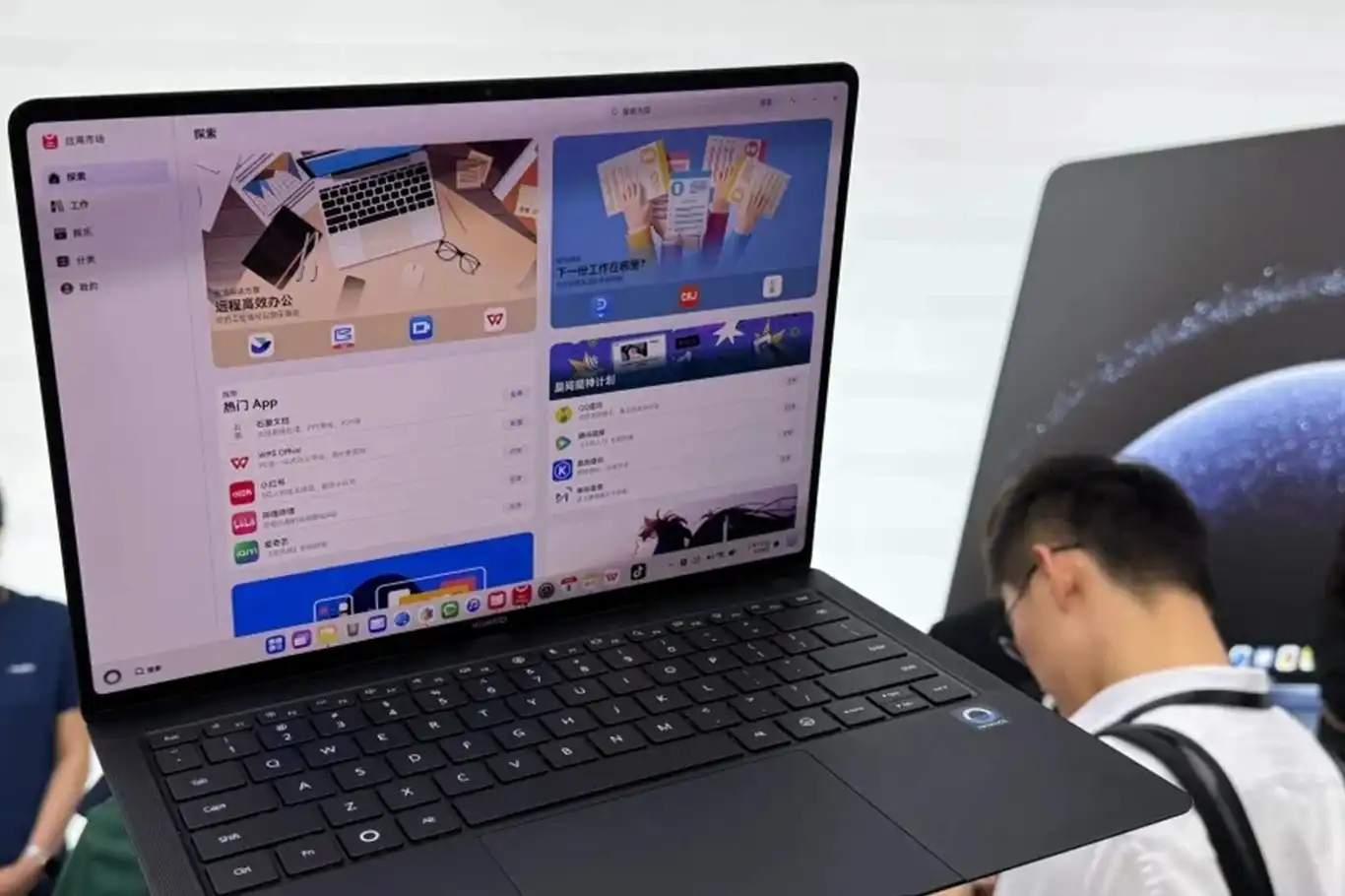Huawei unveils first HarmonyOS laptops, challenging windows and macOS dominance


Huawei has made a bold entry into the personal computer market, launching its first laptops powered by the self-developed HarmonyOS at an event in Chengdu, Sichuan Province, on Monday.
The MateBook Pro and MateBook Fold Ultimate Design mark Huawei’s challenge to the long-standing dominance of Microsoft Windows and Apple macOS in the PC operating system space.
Huawei’s Executive Director Yu Chengdong described the launch as a milestone, emphasizing that HarmonyOS delivers a seamless, intelligent user experience through deep integration of software, hardware, cloud services, and connected devices. “HarmonyOS reshapes the PC experience by achieving cross-platform connectivity,” Yu stated.
Originally launched in 2019 for smartphones and tablets, HarmonyOS—known as Hongmeng in Chinese—has expanded to wearables, smart home devices, and electric vehicles. Its debut on laptops underscores Huawei’s ambition to create a unified, self-reliant tech ecosystem, particularly amid U.S. sanctions and global tech tensions.
Industry analysts see the move as a strategic step to position HarmonyOS as a global alternative to established operating systems, reducing Huawei’s dependence on foreign software. The launch signals a new chapter in the company’s push to redefine the PC market and strengthen its technological independence. (ILKHA)
LEGAL WARNING: All rights of the published news, photos and videos are reserved by İlke Haber Ajansı Basın Yayın San. Trade A.Ş. Under no circumstances can all or part of the news, photos and videos be used without a written contract or subscription.
Global disruptions hit OpenAI’s services today, impacting ChatGPT, its API offerings, and the Sora platform, leaving thousands of users worldwide unable to access critical tools.
China successfully launched the Shijian-26 satellite into orbit on Thursday afternoon, further advancing the country’s capabilities in space-based information services and remote sensing technology.
Türkiye’s electric vehicle (EV) infrastructure continues to grow rapidly, with the number of EV charging sockets approaching 30,000 nationwide, according to the latest report from the Energy Market Regulatory Authority (EMRA).